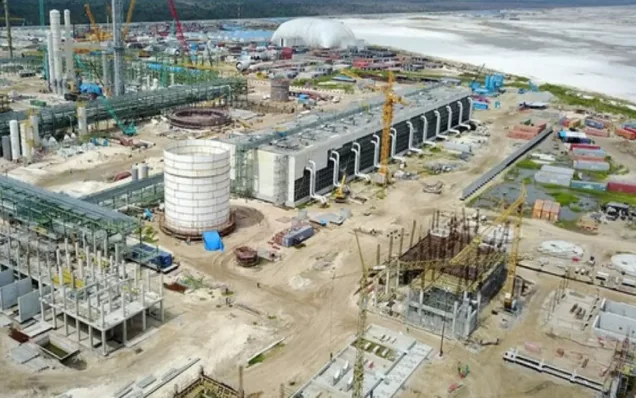November 25, 2018
OpEd By Tope Fasua
Since I gave up paying bills in my house my poor wife has been picking the bills. Of late I’ve been paying mind to her struggles. I was shocked the first time I found we spent N10,000 on electricity every week, even though we still have down time when the estate generating set kicks in. I think back to where we are coming from. I can’t believe we could pay N40,000 plus extra just to have electricity in a 4 bedroom house where one room is almost always unused. We don’t run a factory there. I don’t even own gadgets. We hardly use air-conditioning in the mornings and afternoons and only one TV is on most of the time. Yes we have two fridges and one deep freeze. That is the load in a nutshell. We even put off the outside halogen lights just to save cost. Yet we pay over N40,000 monthly.
In short, electricity has now become too expensive in Nigeria yet the distribution companies are asking for more. They want to increase tariff. The Generating Companies (GENCOs) are complaining that they are not allowed to recover their costs and also they cannot produce the volumes that make sense. The DISCOs are complaining that many people at the grassroots refuse to pay them and that government owes them. The GENCOs also complain that the DISCOs owe them. The TCN (Transmission Company), is managing broken infrastructure and often begs the GENCOs not to generate too much power else the system shots down entirely. We have more than 10 total system collapses this year alone. The consumers complain that the DISCOs are not sending meters and therefor engage in arbitrary billing. The Meter Manufacturers complain that they don’t get paid for meters supplied to DISCOs. The entire system is broken. We need new thinking.
This is the upshot of our power privatization. I recall in 2000-2001 when under governor Gray Davis, the state of California privatized electricity and handed the controls to ENRON. In time ENRON played magic on Californians. Rolling blackouts were initiated in the sweltering summer just to get people to pay more on their tariff. Workers of ENRON (energy traders) were later heard on tape mocking people and joking around as they manipulated the energy market and maximized profit for their company, bonuses for themselves and misery for the people. Governor Davis would lose his shirt for this. And in came Governor Arnold Schwarzenneger in 2003 whose first duty it was to cancel ENRON’s contracts. That was perhaps the world’s first full privatization gone bad.
Nigeria also privatized its generating and distribution ends of the electricity chain, leaving only the transmission bit in the hands of government. Many market economists – and their adherents – have been pushing for full privatization of the transmission of electricity. It is debatable though if this will solve the problem in that sector. For one, we are paying more already. But it could be worse.
So I went to town to find out what obtains abroad. I found out via google that as at 2013, the average electricity bill in the USA is $110.32 according to eyeonhousing.org. according to the OFGEM – the electricity regulator in the UK, the average ‘dual fuel’ tariff is GBP 94.83 as at June 2018. Another website says for a 3 to 4 bedroom house in the USA you can expect to pay between $150 and $200. Now the N40,000 I pay is about $130 monthly if we use our official rates. Now, the per capita income in USA or UK is about 30 times what obtains in Nigeria. This matters, because what we are seeing with the privatization of energy sector in Nigeria is that except something is done to democratize wealth and opportunities, most of Nigeria will soon be in darkness as the people no longer cope, and the private companies also give up.
Friends who live abroad also responded on my recent facebook post on this matter. I sought to know how much they paid as electricity bills. Olabode said he paid $92 (N28,000 equivalent), for electricity in an apartment he rented in Texas for 5 months. Jafaar says he pays an equivalent of N6,250 in Seychelles and the light never blinks. He didn’t say what the size of his apartment is. Moses said his bill in the USA for a 5 bedroom house is about $137.56 (N42,000 equivalent). Obinna wrote that what I pay in Nigeria here is “ridiculously expensive even by UK standards.. and the UK experiences a recent hike that caused uproar”. However Akin who lives in Canada gave a contrary opinion that his bill in winter is about $380 while for summer it is about $700 monthly. He didn’t say what kind of mansion he lives in though. Joseph said a “3,000square feet – 3 story house – gas will be about $100 a month in the summer and $300 a month in winter. Electricity would be $100 a month in winter and $250-$300 in summer”. Nelson countered him by saying “My house is 3,211 square feet with basement in Minnesota (one of the coldest states). I have never paid $250 for gas not even in winter. The highest I paid is $190+. I have never paid more than $150 for electricity. Though we are very struct with the way we consume utilities in our home”.
One Carlo Gambino (not real name) opined that “Nigeria must invest in local Power Industry as a matter of National Security. Asides for the Turbine technology which we are light years away from attaining. We need to buy Technology licenses and blueprints from OEMs in making consumables and other distribution components from Pylons, cables, grid switches Transformers, ceramic components for switches etc which are constantly replaced time to time. We do not expect to import the millions of kilometers length of cables needed for both the grids and domestic use. So, we must Industialise in this sector with best R&D and Quality Control and aim to be one of African giants in exporting to other African States”. Johnson, in analyzing why were are at this point, wrote “Methinks our major problem is that our cost of building power plant is too high and that is so because we import practically everything necessary. Secondly, the issue of gas insufficiency has increased the cost if production in power sector. The other thing is the double digits interest loans here in Nigeria. Over time we would discover that no power plant can be built without loans and the Nigerian loans here only helps to increase capital and production”. Frank wrote: “There is a massive systemic dislocation and disjointment in Nigeria. The current structure is choking progress and increasing regressiveness. That is how simple I can explain it”.
In general the cost of producing and distributing energy is higher here than the USA or elsewhere because we import the entire technology and the importation of other peoples’ ideas and innovations comes at a steep premium. Also those importations and slap up arrangements are extra expensive because of our mindless primitivity and corruption, sabotage and general dark-mindedness. What I don’t want the DISCOs to get away with is to say our tariff is too cheap. No, it’s not. Let us say what we pay in Nigeria right now is at par with what people pay elsewhere where their income is stratospherically higher than ours here, and where most of their payment is taxes that go to government for the provision and maintenance of general infrastructure. Out there, government is king. The big issue though, is for how long can we afford this as a people, given where our income levels are? There is a reason why the DISCOs will never get to our rural areas – in spite of the staggered tariffs. It is because the rural guys can never in this lifetime pay the rates that these DISCOs will want to take from them. The income levels at our rural areas for most families, are tending towards zero. I wrote recently about those Micra taxi drivers in Ibadan, who still collect N20 per drop. Those kinds will never be able to pay their bills.
The Future – Nigeria will keep struggling with this broken electricity infrastructure because it is what we know. But forcing such infrastructure to work may be futile in the medium to long term. I believe we have come to an epoch in which we much think radically differently. I have opined elsewhere that the national grid is to electricity what landlines are to telephony, and that just as we leapt from the age of NITEL inefficiency into becoming one of the countries with the highest mobile phone density in the world, we should also begin to extricate ourselves from the national grid by proliferating alternative, stand-alone or embedded energy. It is time for us to lunge into the future. The reality is that electricity generation has since been demystified away from this idea of large power grids. Young people everywhere have developed smarter, more clever ways of generating electricity and the future is alternative, smart, sustainable and affordable energy. Now is the time to help ourselves as a people.














